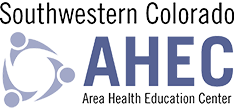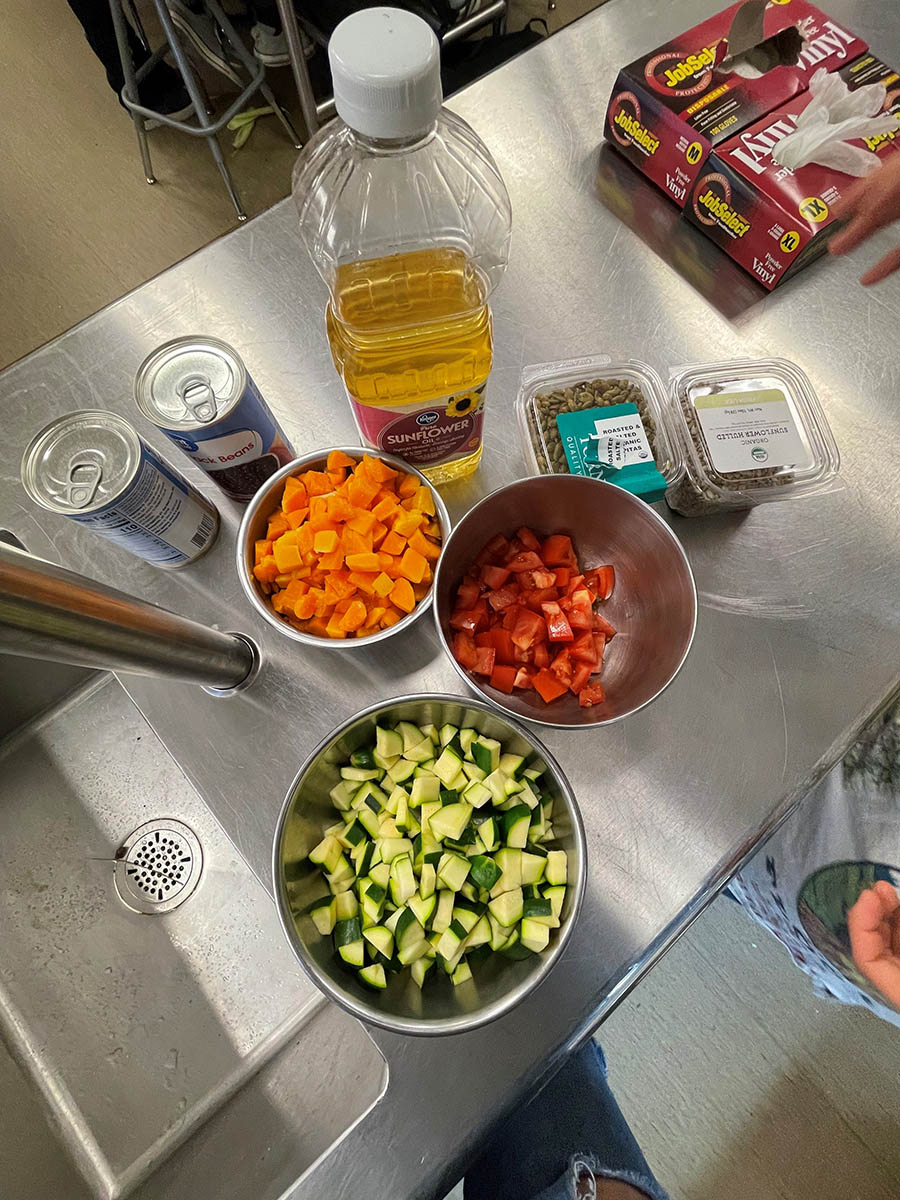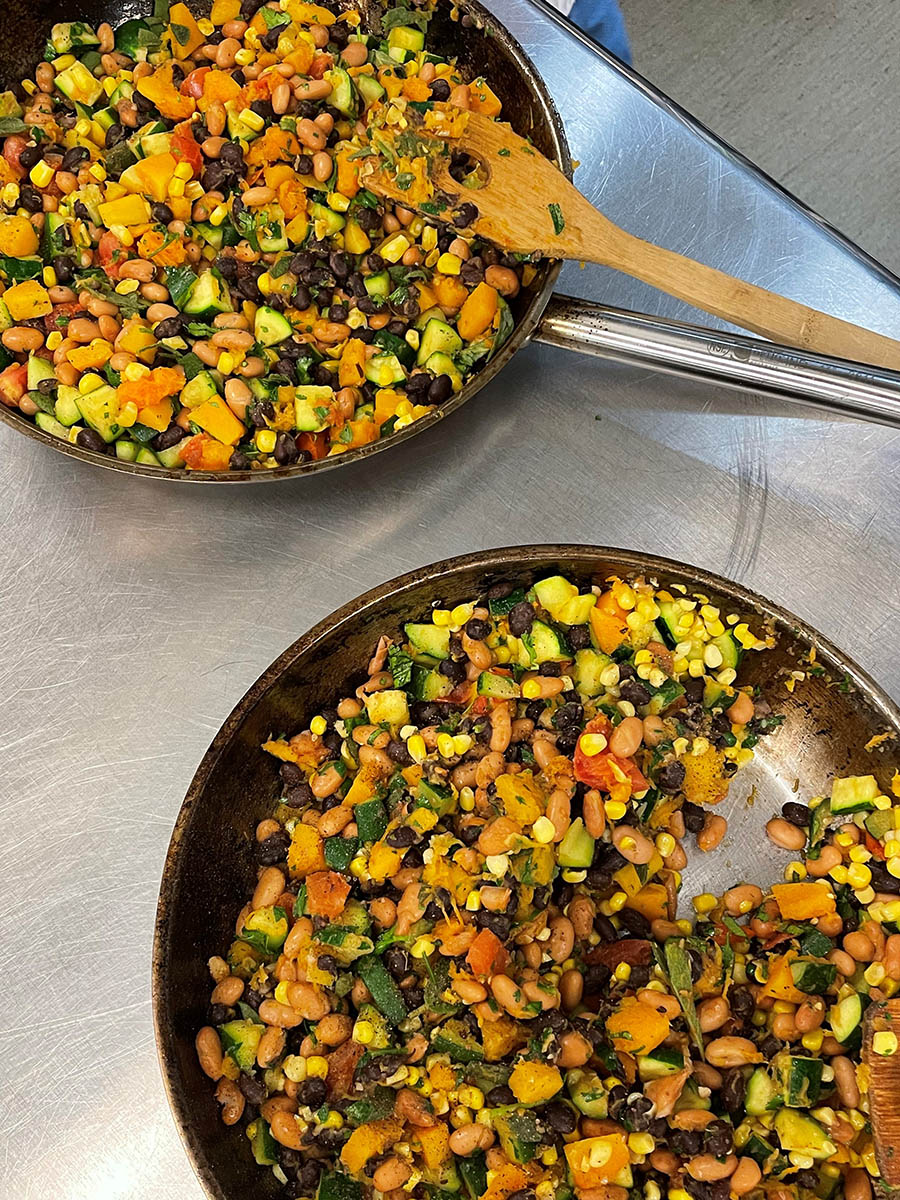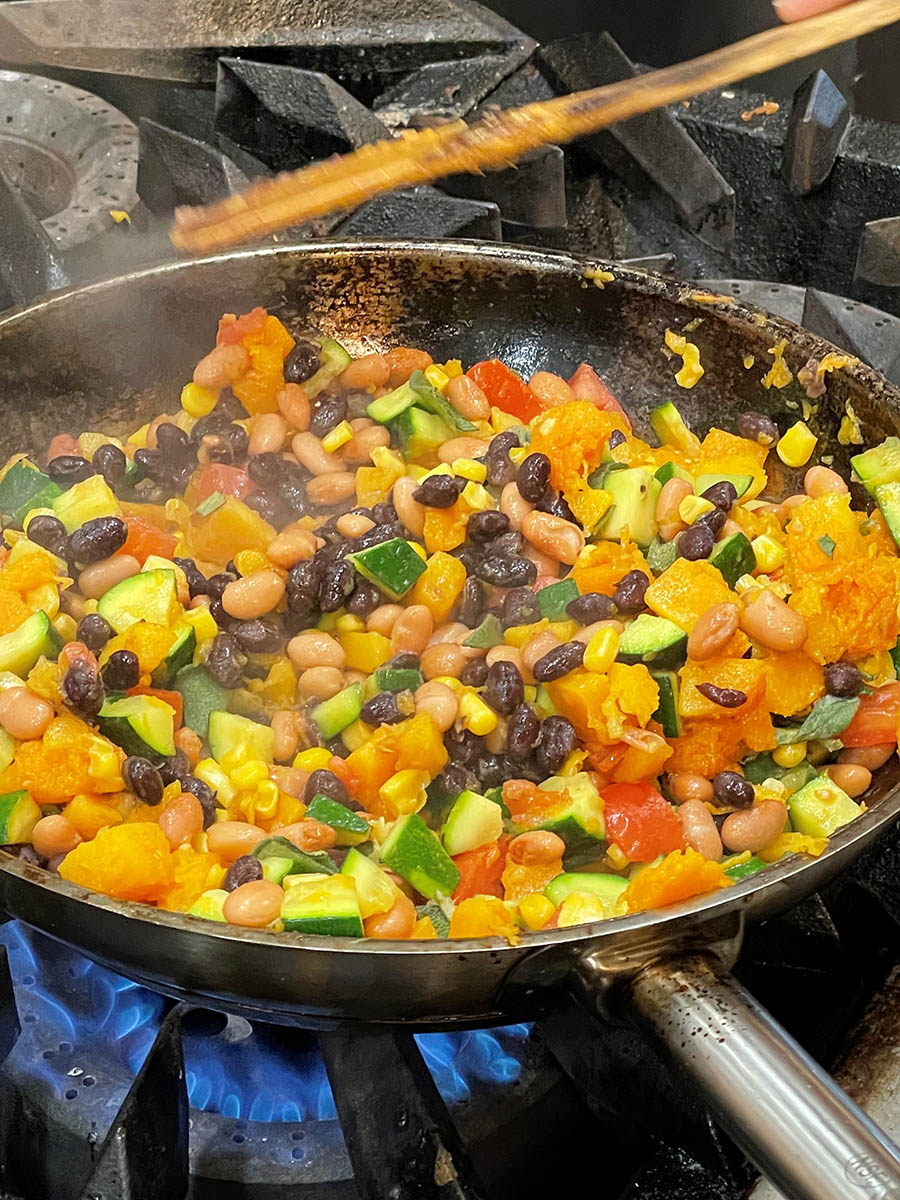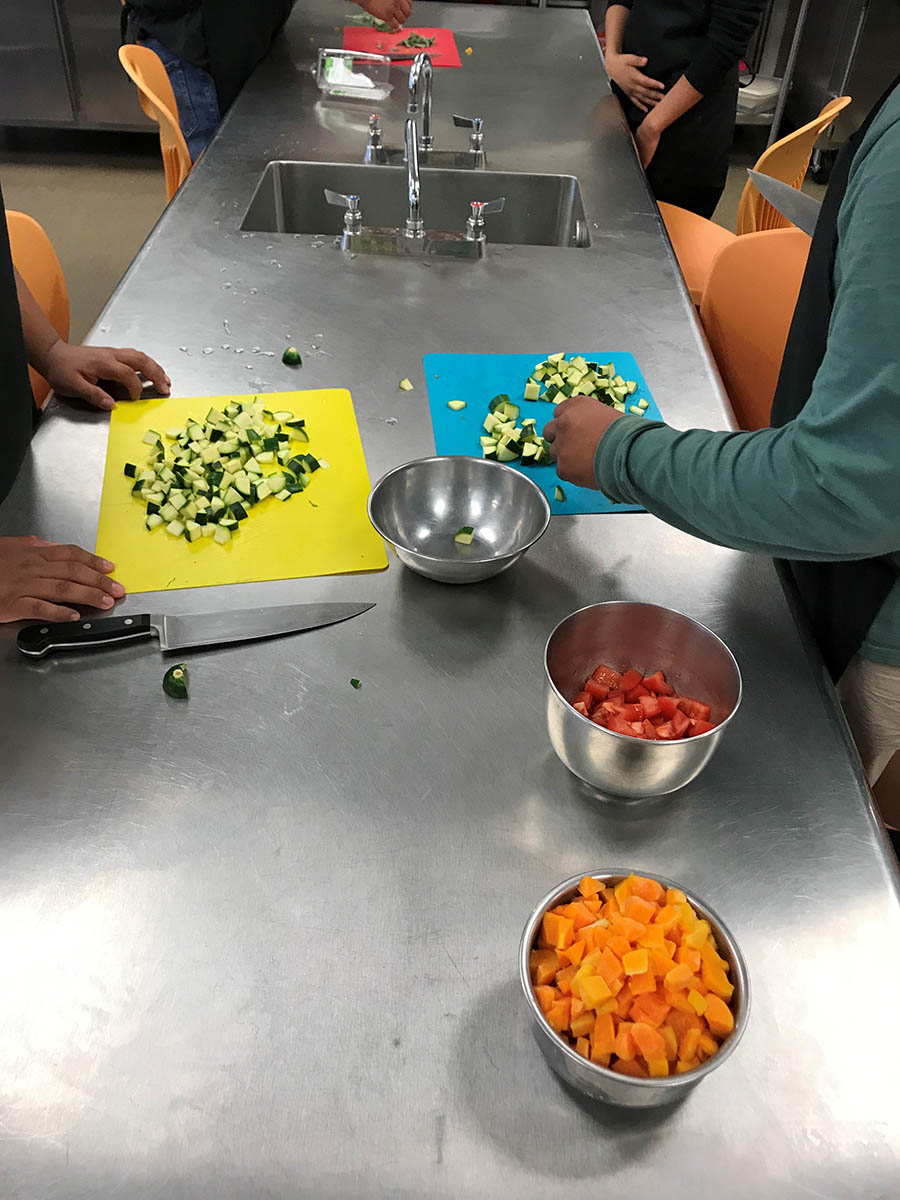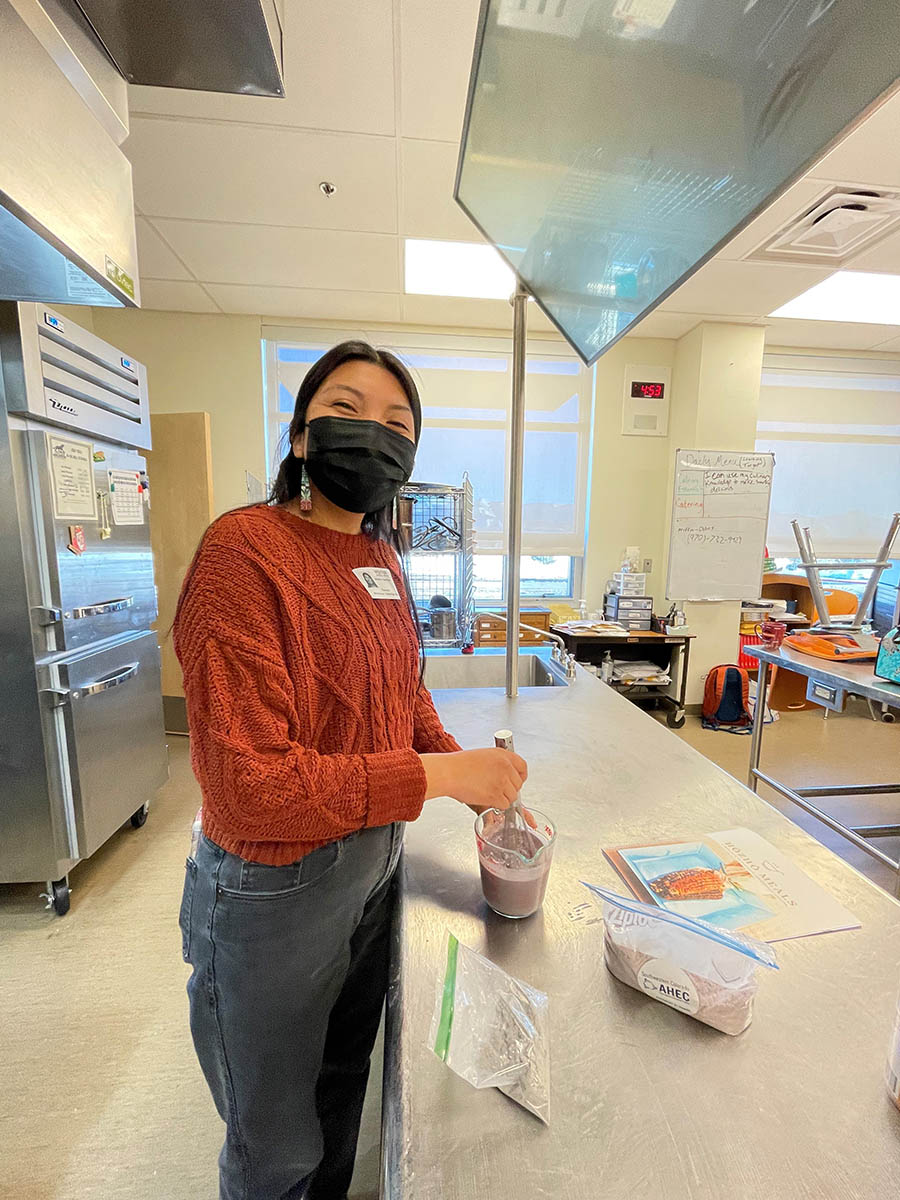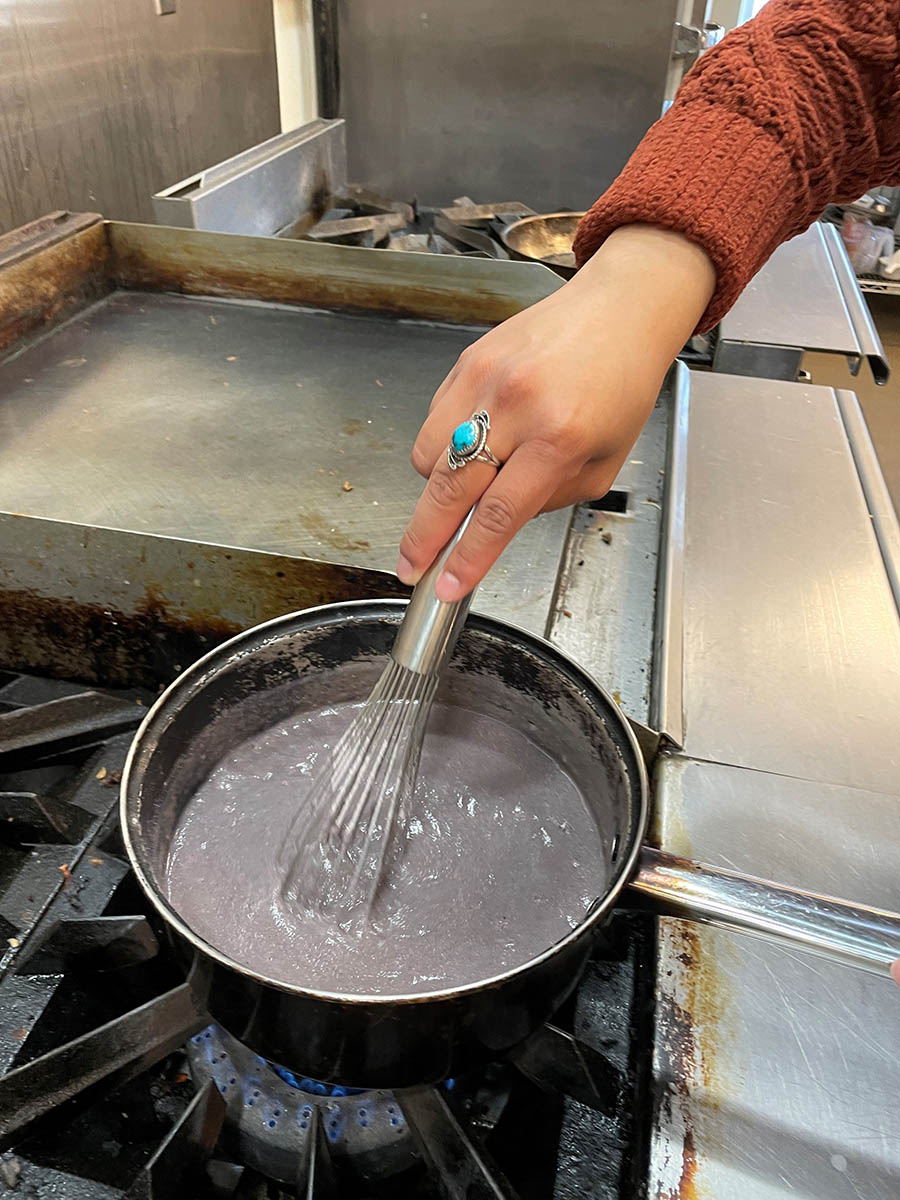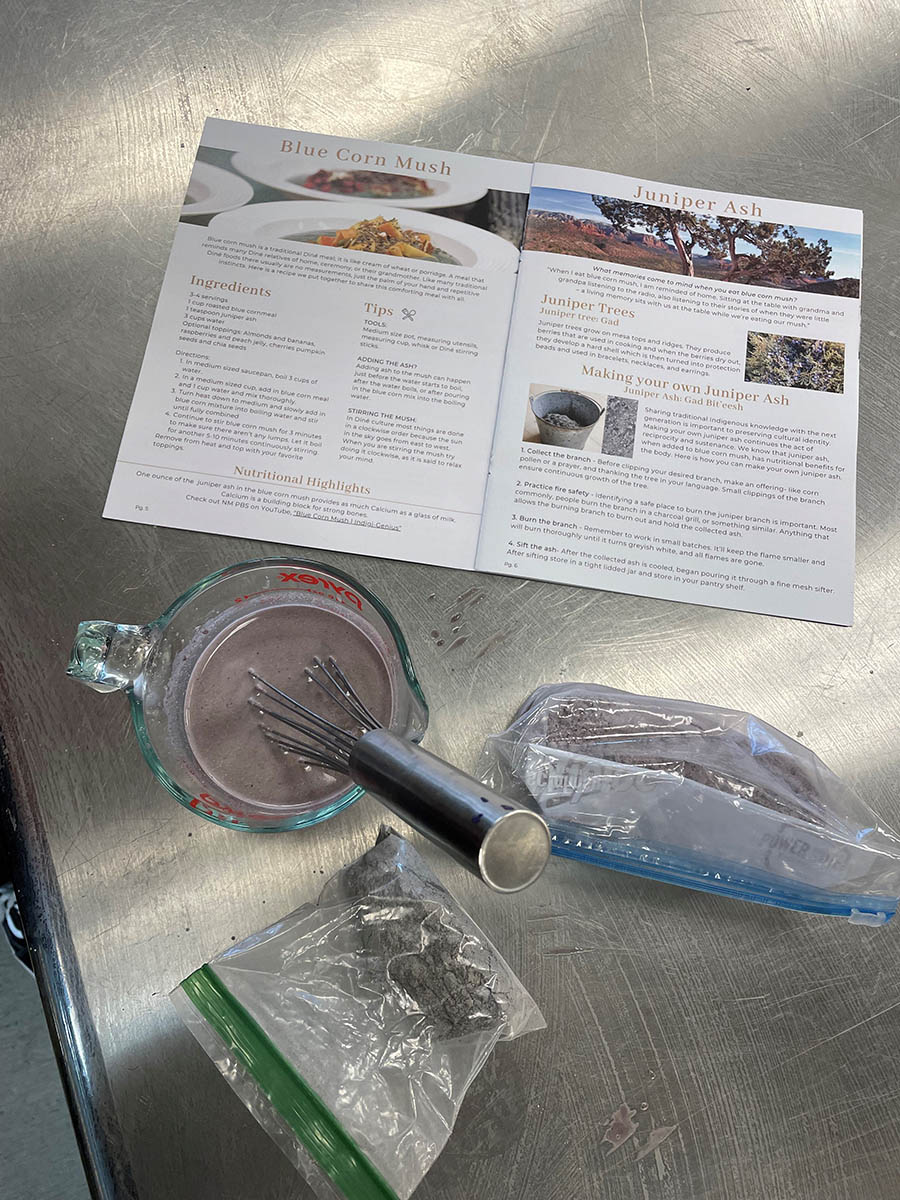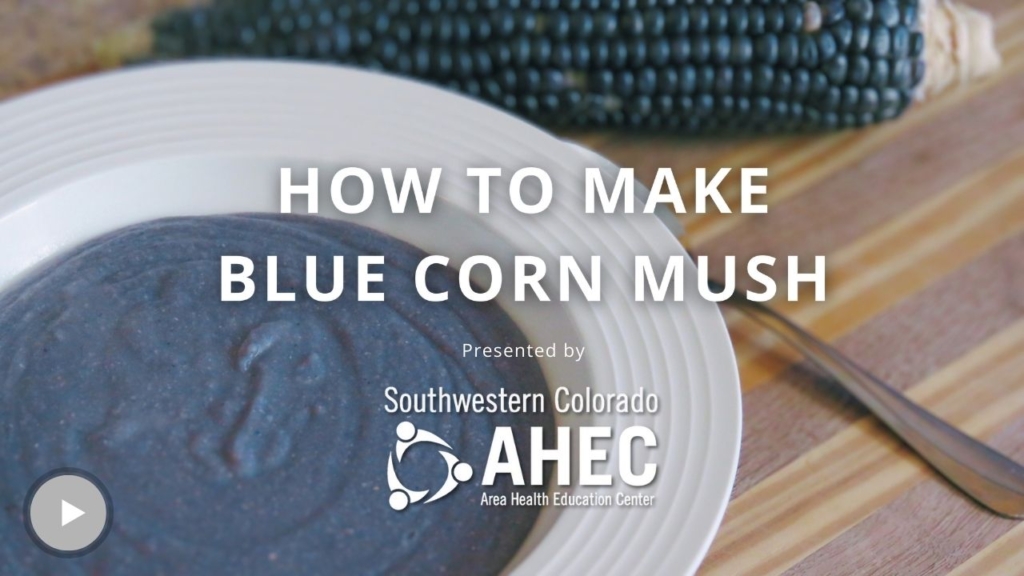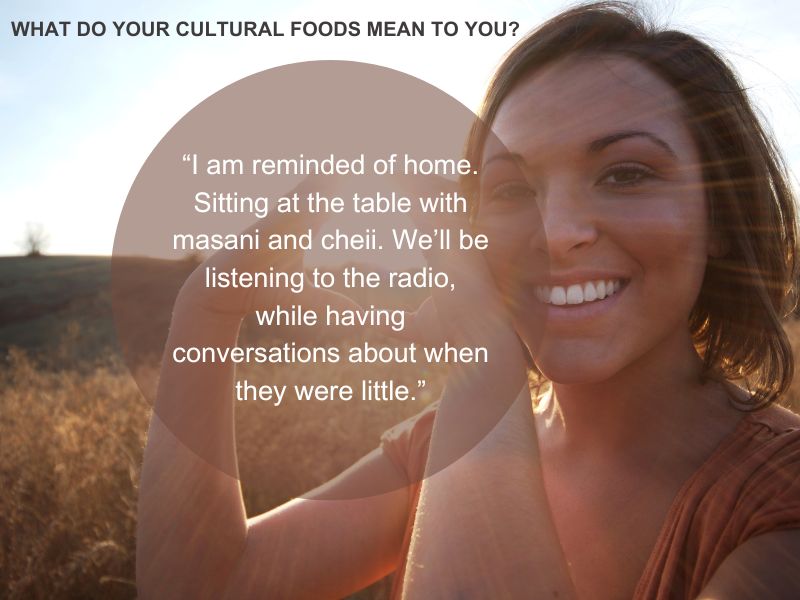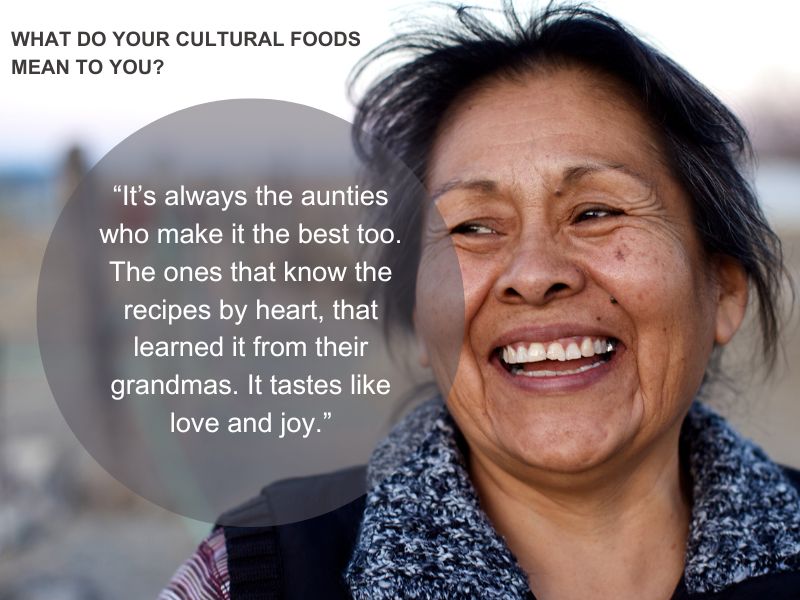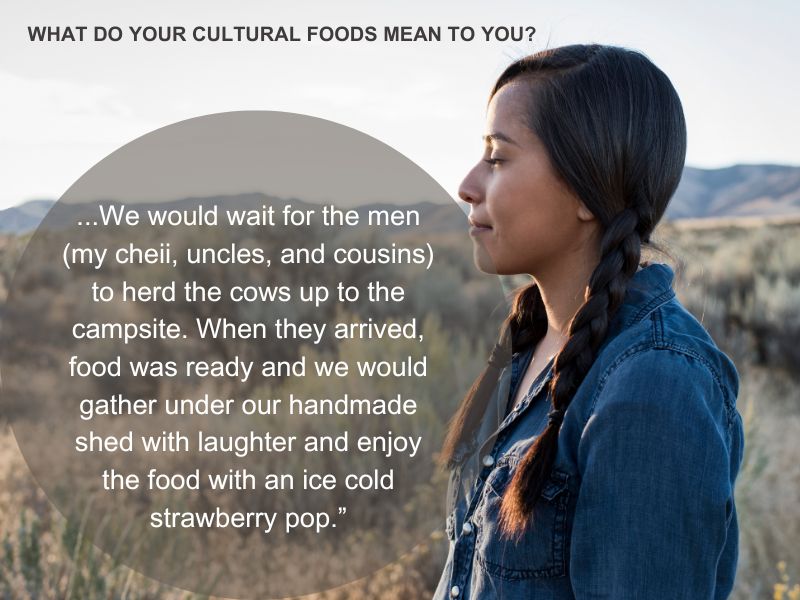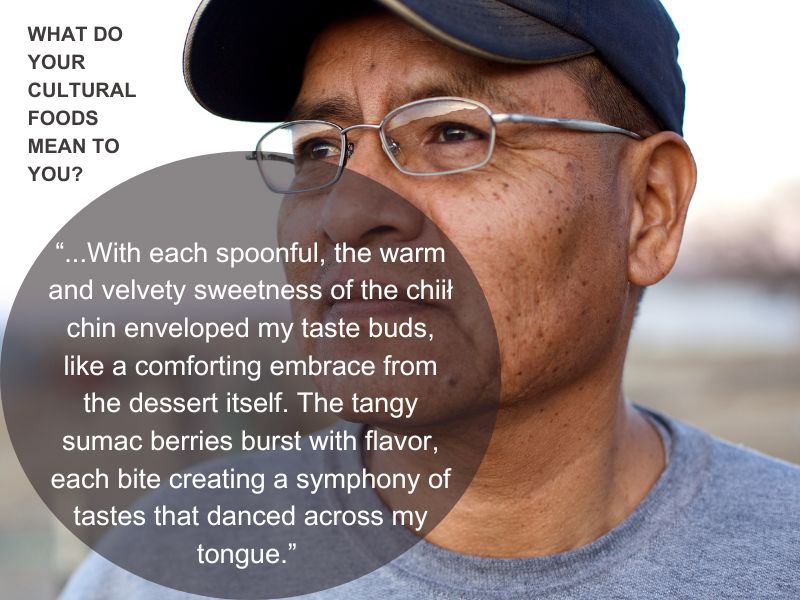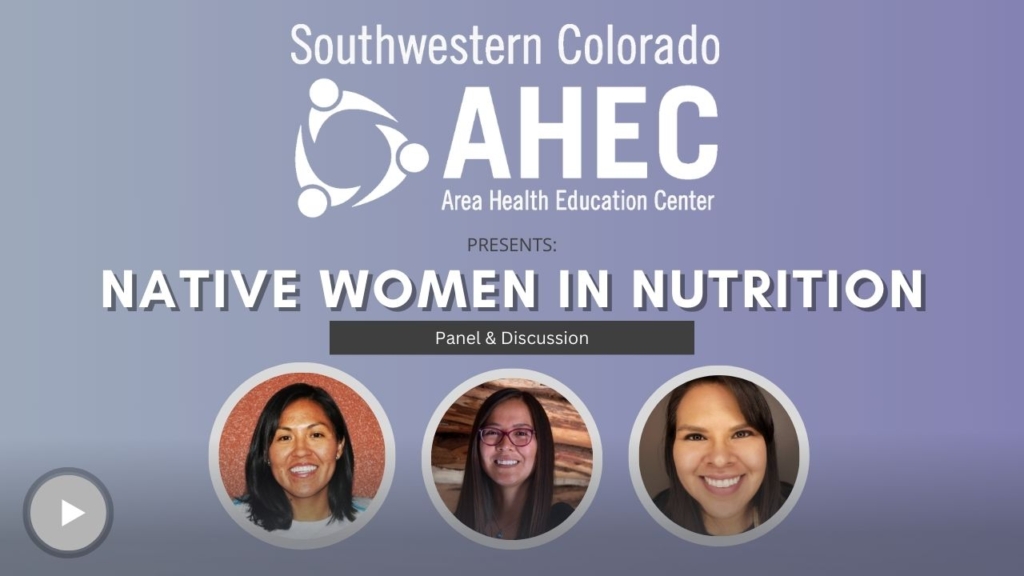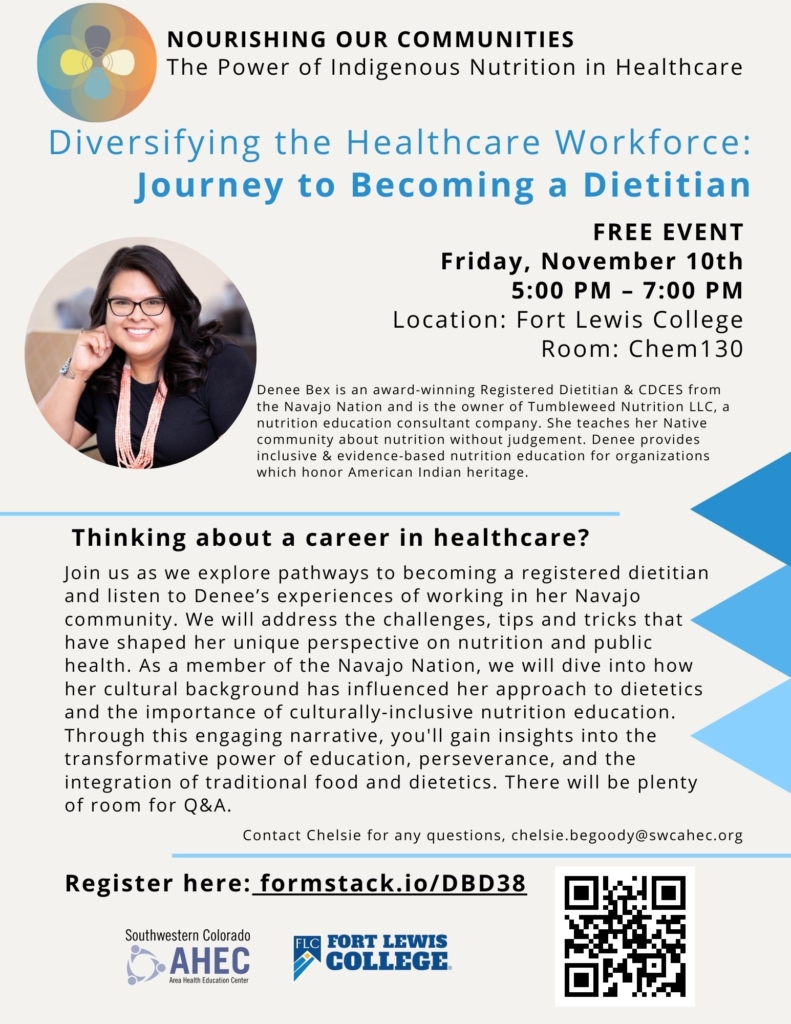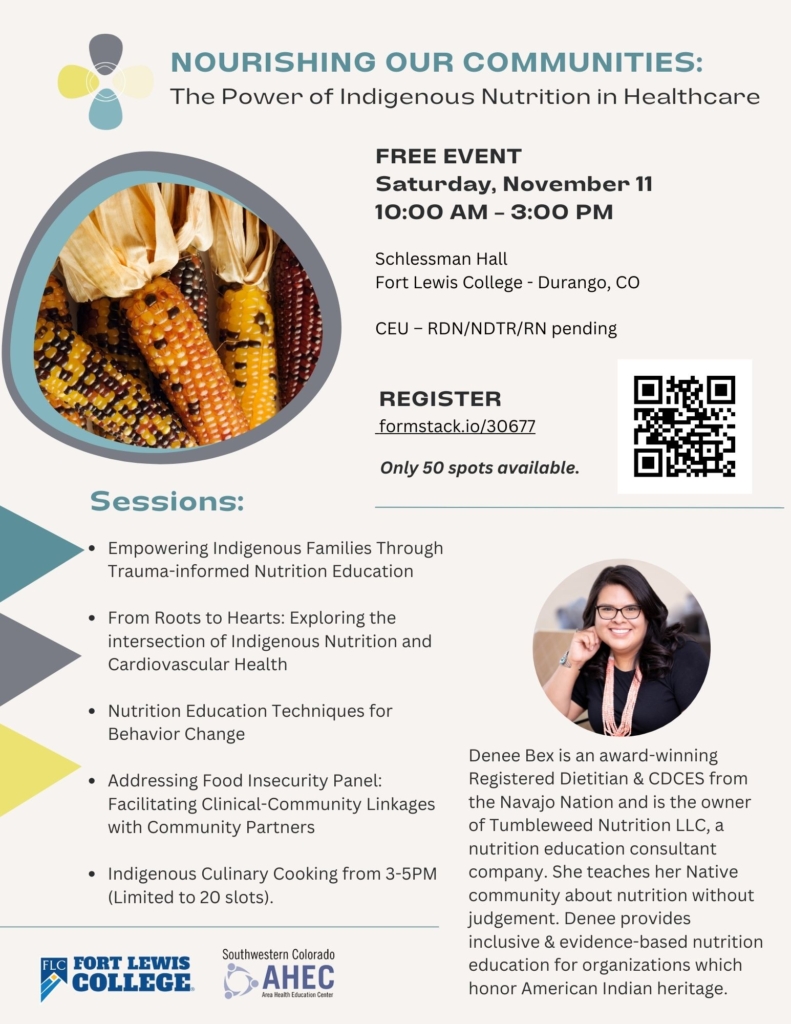Connecting Food, Culture, and Health
The history of Indigenous food systems has changed dramatically throughout time due to forced relocation and assimilation, lasting implications of this have had detrimental effects on the health of Indigenous populations to this day. With this page, is shared resources that celebrate Indigenous cultural foods for its resilience, health benefits, and educational components while leveraging culture connection in exploring health career pathways.
*Disclaimer: If you are non-Indigenous, please refrain from culture appropriation and exploitation. We ask that this knowledge be utilized with respect. These practices of Indigenous food knowledge are intended for community members who have cultural connection and/or are in positions that serve indigenous communities.
Looking for ways to connect? Contact Regional Health Connector, Chelsie, at [email protected]
Food
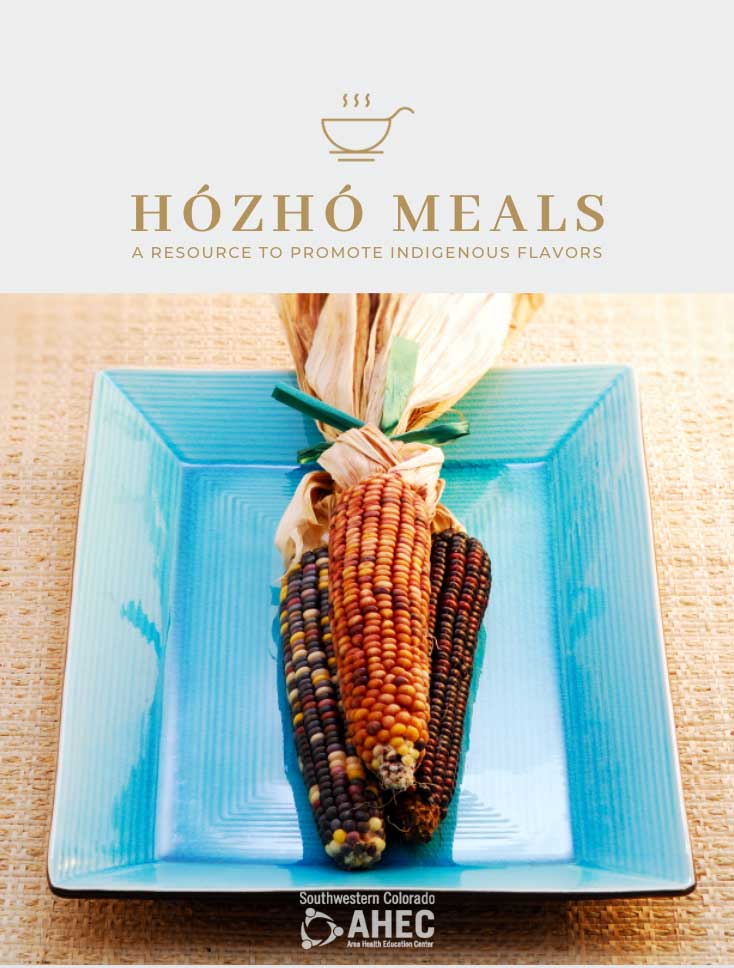
Indigenous Recipe Booklet
The indigenous e-recipe book is one of many resources that shares recipes inspired by indigenous culinary experts and cooks. The goal of this recipe booklet is to ensure most ingredients are accessible and likely to be affordable to people. We want our health professionals to feel confident in directing patients to a resource that best suits their cultural background. We hope this Indigenous recipe booklet makes it into the hands of community members that may find this useful to their wellbeing and encourages reclaiming cultural foods.
Contact [email protected] for hard copies, questions, feedback, or collaboration interests.
HÓZHÓ MEALS – A RESOURCE TO PROMOTE INDIGENOUS FLAVORS. Download the online copy here.
Cooking Demonstration & Activities
Cooking activities and demonstrations have been one way to engage students with health careers, such as Nutrition, this provides hands-on learning, cultivates interests, and enhances cultural understanding.
Picture to the right: Cooking activities led by Community Health Programs Associate, Chelsie Begoody. Montezuma-Cortez High School, Indigenous Club: Students created six recipes from Hózhó Meals, while having conversation around Indigenous food.
Picture below: Health Careers Institute: In collaboration with Marnie Clay, Fort Lewis College Assistant Professor of Nutrition, created a Three Sisters’ dish from Hózhó Meals.
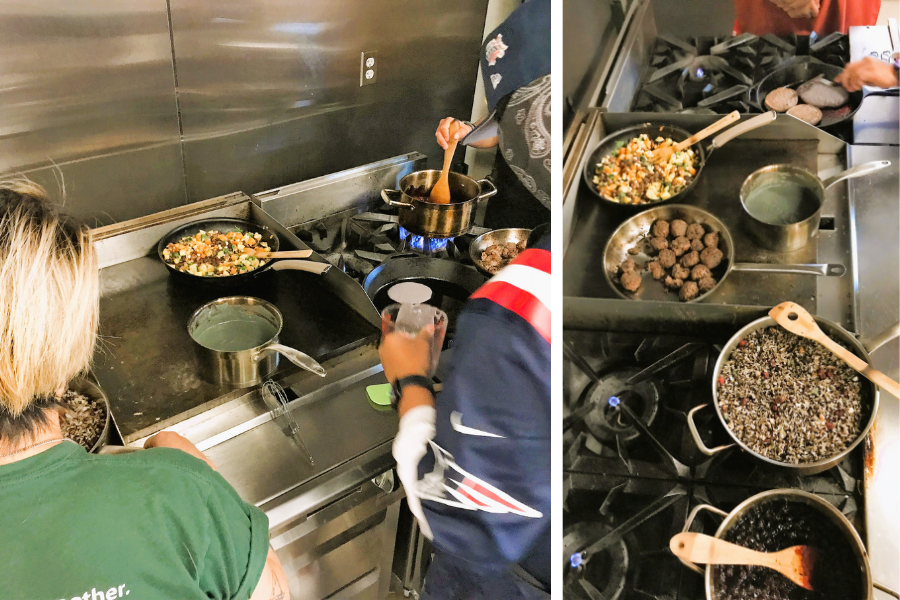
“Aside from the dish being delicious, I enjoyed the incorporation of traditional Indigenous foods and explained a bit about the importance of the items and sharing how cost-efficient the entire meal was. I also think it was fitting how we related a career in nutrition to the cooking demo…”
SWCAHEC Student Intern, Jessica Sanchez
The Healthy Home Cooking video demonstrates steps on creating blue corn mush, a minimal dish that is nutritious, and can be modified to be more nutritious by adding colorful fresh fruit toppings. There’s also advice on tips and tricks to best create Blue Corn Mush.
Culture
Food as Medicine
The concept, food as medicine, could mean the integration of nutrition into our health care system- such as doctors prescribing fruits and vegetables or healthy meals with or without other medications to reduce the need for expensive health services. In many Indigenous cultures, food as medicine, could be viewed as knowledge of food that has kept Indigenous people well for centuries. This not only encompasses food as consumption, but rather looking at the integration of food in Indigenous culture overall. There have been many practical uses of food that have provided Indigenous tribes with shelter, clothing, and tools to this day. While some other aspects involve relationship to food in ceremony, songs, and storytelling that contribute to health and healing with the individual, family, and/or community.
The Stories Behind Cultural Food
Health
Watch this video about Native Women in Nutrition
The Native Women in Nutrition Panel featuring Cynthia Wilson, Denee Bex, Alvina Begay, who are Navajo women that completed the Nutritional science curriculum and have furthered their careers in healthcare and food related work. They express the importance of representation in the dietetic workforce, addressing the needs of their communities, and offering advice for students who are interested in a Nutrition health field.
NOVEMBER EVENTS
Indigenous Food Resources to Explore
-
United States Department of Agriculture:
https://www.fns.usda.gov/cn/serving-traditional-indigenous-foods
-
Indian Health Services:
https://www.ihs.gov/Nutrition/
-
First Nations: https://www.firstnations.org/wpcontent/uploads/2018/11/FDPIRCookbookFInalLowRes.pdf
-
Tumbleweed Nutrition: https://www.tumbleweednutrition.com/
-
I-Collective: https://www.icollectiveinc.org/gathering-basket
-
Warne, D., & Wescott, S. (2019). Social Determinants of American Indian Nutritional Health. Current developments in nutrition, 3 (Suppl 2), 12–18. https://doi.org/10.1093/cdn/nzz054
